Energy bills in NI to rise as government discount ends
- Published
- comments

The withdrawal of support will add hundreds of pounds to some household bills
Energy bills for most households in Northern Ireland will increase by hundreds of pounds a year from Saturday as government support comes to an end.
The Energy Price Guarantee (EPG) Scheme was introduced in November 2022, applying a discount to the unit rate of electricity and gas prices.
But the discount no longer applies from Saturday, having been gradually reduced from since January.
A reduction in April meant bills rose despite price cuts by suppliers.
Deirdre McCausland, a single mother-of-two from west Belfast, who is with Budget Energy, said she was in shock at the increase in bills.
She said it was "the worst timing ever" and that "something needs to be done about it".
"I just keep thinking how much more pressure are families - not just single people like me - the working poor [under]. How much more are we going to be able to tolerate all this?" she told BBC Radio Ulster's Evening Extra.
"I only found out about the rise through an email.
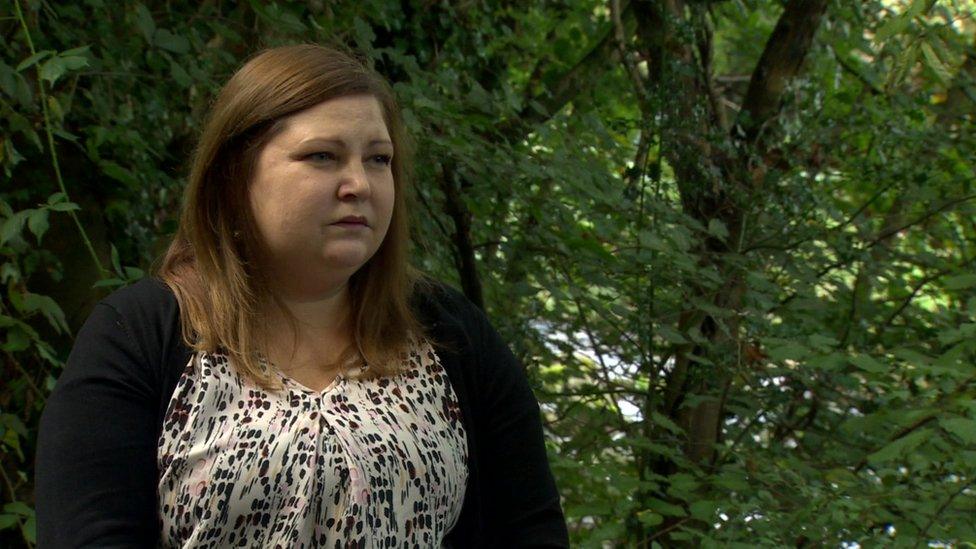
Deirdre McCausland, a single mother from west Belfast, said she was in shock at the increase in bills
"It is the worst timing ever. This is just before the summer - my children got off today, it is their last day of school, and then we are being hit with all these costs.
"I am just wondering, when is it going to stop?
"I have a 14-year-old and a nine-year-old. When I was young growing up my parents protected me from poverty; I can't protect my children [and] because of social media they are more aware than ever of what lies ahead.
"That is an absolute shambles and something needs to be done about it."
What will this mean for bills?
The majority of customers will see the tariffs charged by their supplier frozen or cut but the withdrawal of the EPG support will mean that their bills actually increase.
Raymond Gormley of the Consumer Council described the move as "unfortunate" as he said prices remained at about double the pre-Covid pandemic norm.
He said the government would review the need for the scheme every three months until next spring.
"So if energy prices increase significantly in the winter, the Consumer Council will make the argument to government that they should reinstate a subsidy".

Electricity prices
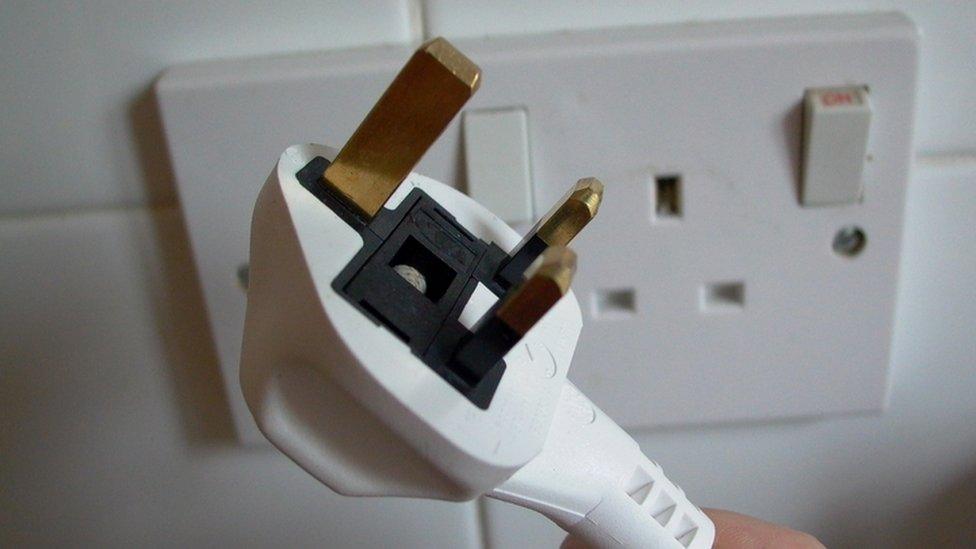
Falling electricity prices have been offset by a reduction in government support
Power NI is the largest electricity supplier in Northern Ireland, with about 479,000 domestic electricity customers.
It announced a 7.1% decrease in its standard tariff but the end of the government discount means customers will see an increase of about £49 a year.
That means a typical annual bill will rise from £966 in June to £1,015 from July.
SSE Airtricity, Electric Ireland and Budget Energy are not changing their tariffs - customers will see their average bills rise by about £127 a year.
For SSE Airtricity customers, a typical annual bill will rise from £1,229 in June to £1,356 from July
For Electric Ireland customers, a typical annual bill will rise from £1,249 in June to 1,376 in July
For Budget Energy customers, a typical annual bill will rise from £1,337 in June to £1,463 in July
Click Energy is reducing its standard tariff by 10.36% and other tariffs also also being cut to offset the reduction of government support - customers will see no change in their typical yearly bills.
It is the smallest of the five Northern Irish electricity suppliers, with about 24,000 customers.

Gas tariff changes
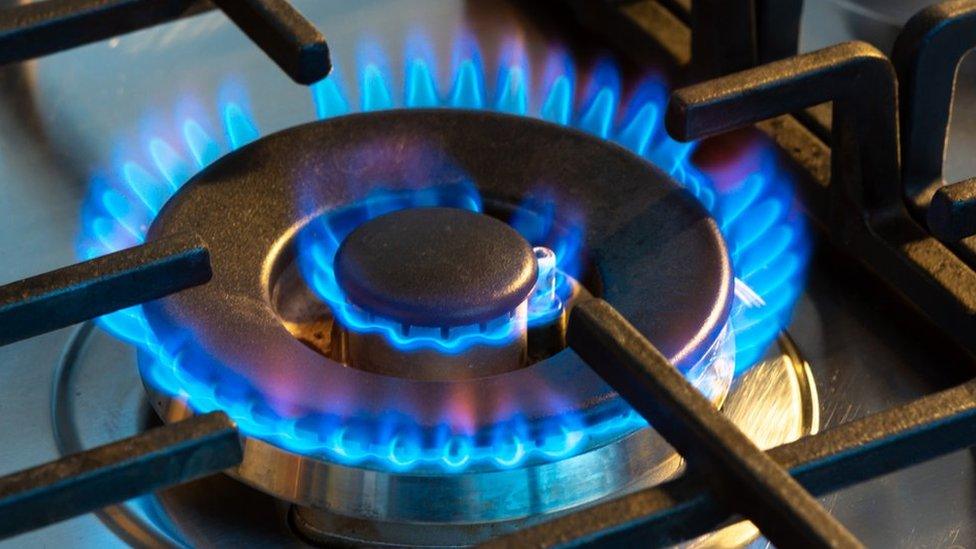
SSE Airtricity provides gas to about 195,000 customers in the Greater Belfast area
SSE Airtricity announced a decrease of 12.2% effective from July but customers will actually see their gas bills increase by about £134 a year because of the loss of government support.
That means a typical customer's annual bill will rise from £1,266 in June to £1,399 in July.
SSE Airtricity serves about 195,000 customers in the Greater Belfast area and 3,200 customers in the Gas to the West area.
Bills for Firmus Energy customers will increase by about £328 in both the Ten Towns gas network and the Greater Belfast gas network areas.
For those in the Ten Towns gas network area, a typical annual bill will rise from £1,147 in June to £1,475 in July.
A typical bill for customers in the Greater Belfast area will rise from £1,190 in June to £1,518 in July.

From January to March this year energy bills in Northern Ireland were being discounted by up to 13.6p a unit for electricity and 3.9p a unit for gas.
That support was reduced from April to June 2023 - bills were discounted by up to 3.8p per unit for electricity and 2.6p per unit for gas.
The EPG will drop from about £454 a year in discount for the average household to nothing from 1 July 2023.
In Northern Ireland, the Utility Regulator imposes price controls on the major suppliers: electricity firm Power NI, SSE Airtricity gas in greater Belfast and Firmus Energy gas in the so-called Ten Towns network.
The regulator approves the maximum tariffs based on the costs for providing the service and a small profit margin.
Related topics
- Published2 June 2023
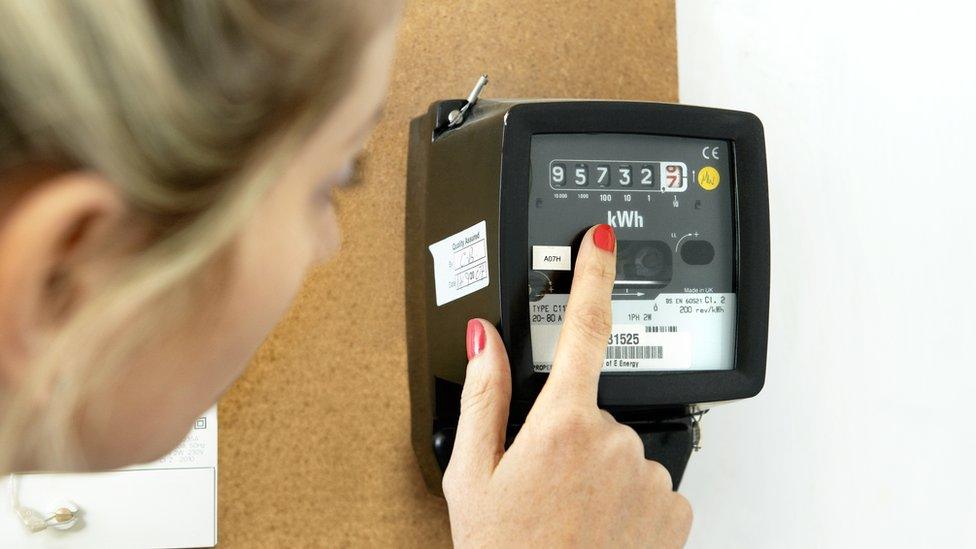
- Published26 May 2023
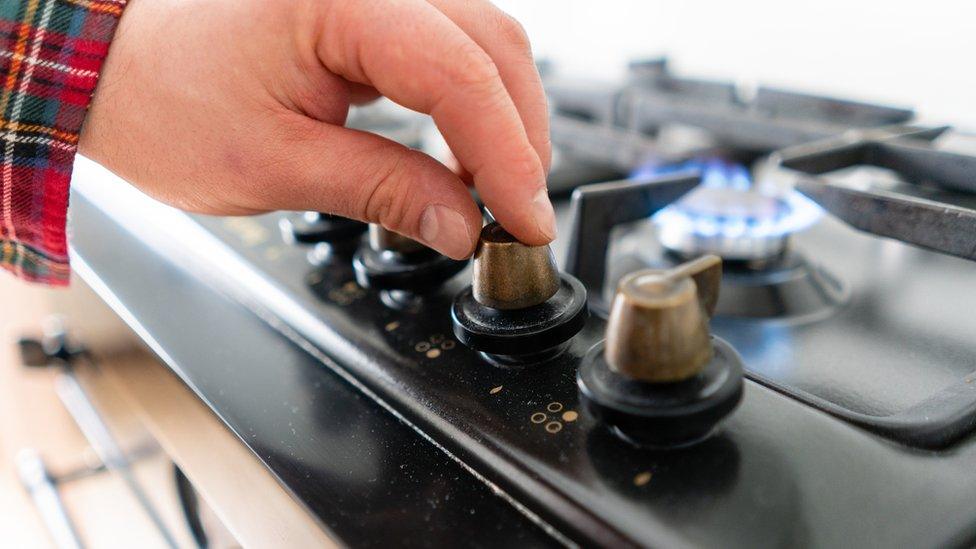
- Published16 March 2023
